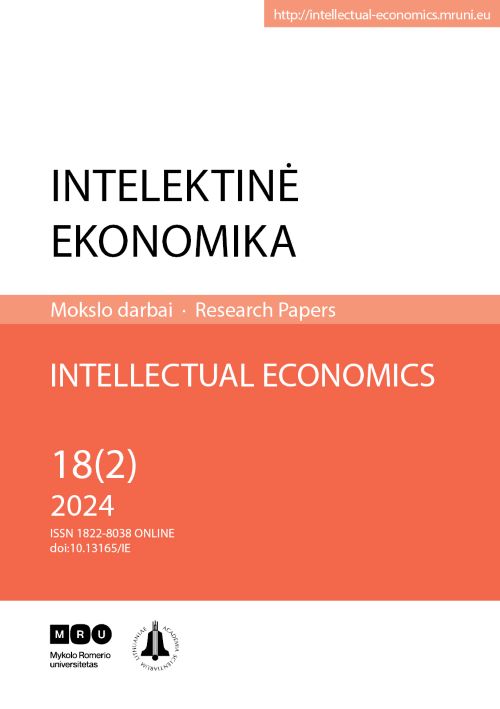How does the level of the anti-dumping duty affect the trade re-routing phenomenon?
##plugins.themes.bootstrap3.article.main##
Abstract
Purpose. The practice of trade re-routing, where goods are redirected through intermediary countries to evade anti-dumping duties, poses significant challenges for global trade regulation. While this phenomenon is well-documented, the specific relationship between the intensity of trade re-routing with the level of anti-dumping duties and the involvement of multiple countries has not been fully explored. This study advances the research by investigating the direct correlation between anti- umping duty levels and the scale of re-routing activities, offering a more nuanced understanding of how varying duty levels influence firms’ strategic responses.
Methods. Drawing on trade data from 2014 to 2023, we employ econometric analysis to examine how anti-dumping discount fluctuations affect trade volume through third countries.
Findings. Our findings reveal that when duty levels are high, firms’ incentive for trade re-routing increases, and the phenomenon’s intensity rises, with multiple intermediary countries being employed to obscure their trade routes further. The results provide empirical evidence that higher duty levels substantially increase the incentive for trade re-routing. In contrast, lower duties tend to reduce the motivation for such practices.
Originality. Focusing specifically on the intensity of the re-routing phenomenon and the complexity of intermediary involvement in response to duty levels, this study goes beyond existing literature to provide deeper insights into the conditions that drive or mitigate duty evasion tactics.
Practical implications.This research has critical implications for policymakers, as it highlights the limitations of current anti-dumping measures in addressing circumvention. The study underscores the need for more sophisticated detection and prevention mechanisms to counter firms’ adaptive strategies, particularly when facing high-duty scenarios. Our findings contribute to the
broader trade enforcement discourse by offering theoretical and practical implications for strengthening international trade governance.
##plugins.themes.bootstrap3.article.details##
Authors contributing to Intellectual Economics agree to publish their articles under a Creative Commons Attribution 4.0 International Public (CC BY) License, allowing third parties to share their work (copy, distribute, transmit) and to adapt it, under the condition that the authors are given credit, and that in the event of reuse or distribution, the terms of this licence are made clear.


 https://orcid.org/0009-0001-2484-0915
https://orcid.org/0009-0001-2484-0915





